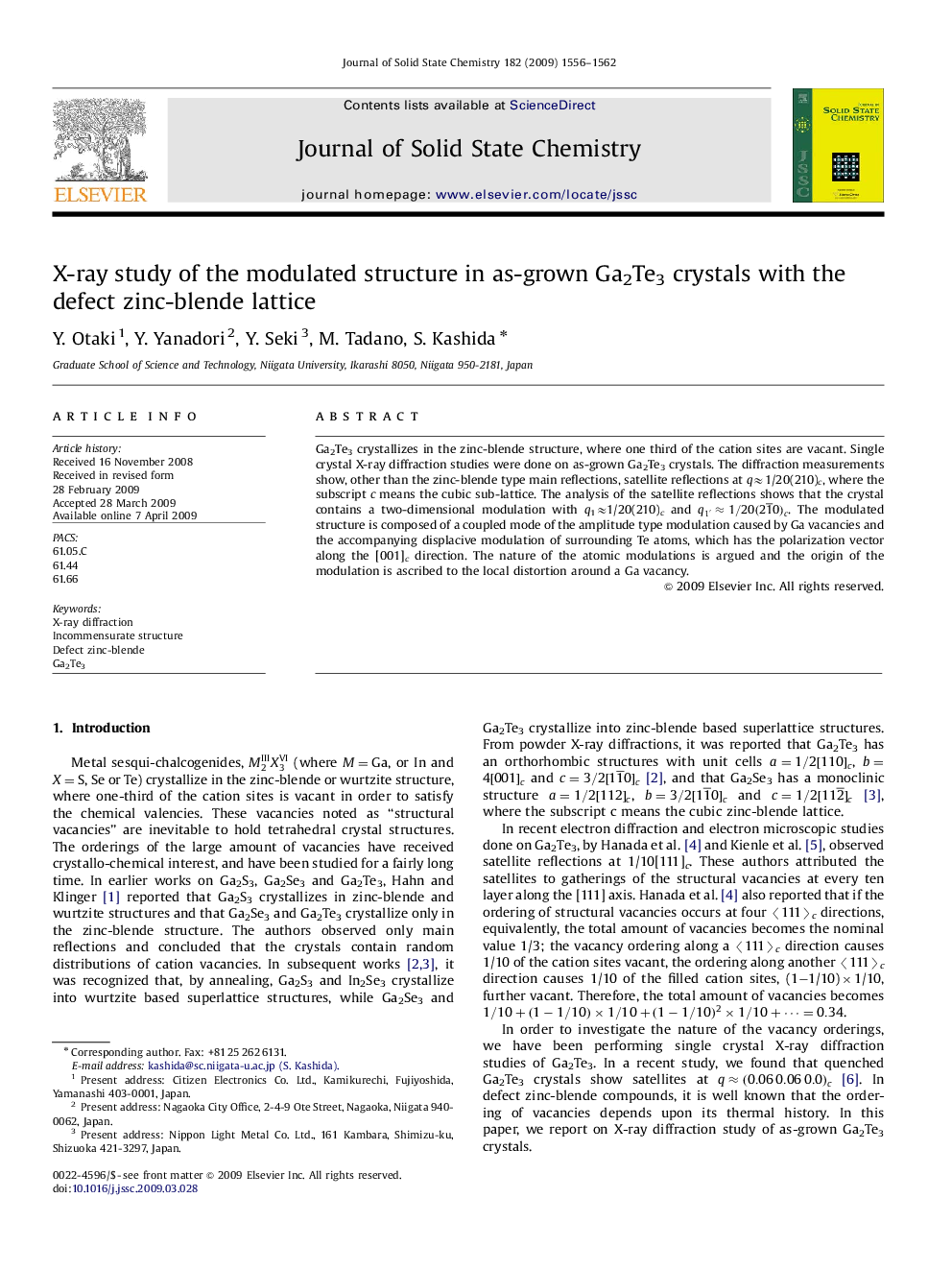| Article ID | Journal | Published Year | Pages | File Type |
|---|---|---|---|---|
| 1331843 | Journal of Solid State Chemistry | 2009 | 7 Pages |
Ga2Te3 crystallizes in the zinc-blende structure, where one third of the cation sites are vacant. Single crystal X-ray diffraction studies were done on as-grown Ga2Te3 crystals. The diffraction measurements show, other than the zinc-blende type main reflections, satellite reflections at q≈1/20(210)c, where the subscript c means the cubic sub-lattice. The analysis of the satellite reflections shows that the crystal contains a two-dimensional modulation with q1≈1/20(210)c and q1′≈1/20(21¯0)c. The modulated structure is composed of a coupled mode of the amplitude type modulation caused by Ga vacancies and the accompanying displacive modulation of surrounding Te atoms, which has the polarization vector along the [001]c direction. The nature of the atomic modulations is argued and the origin of the modulation is ascribed to the local distortion around a Ga vacancy.
Graphical AbstractGa2Te3 crystallizes into the zinc-blende structure, where one third of the cation sites are vacant. Single crystal X-ray diffraction studies showed that as-grown Ga2Te3 crystals display main reflections which correspond to the cubic zinc-blende lattice and satellite reflections at q=(0.089 0.050 0.00)c. These satellite reflections show that Ga2Te3 crystals contain transverse type displacement modulation, whose traveling direction is almost 〈210〉c, while the polarization vector is nearly 〈001〉cFigure optionsDownload full-size imageDownload as PowerPoint slide
